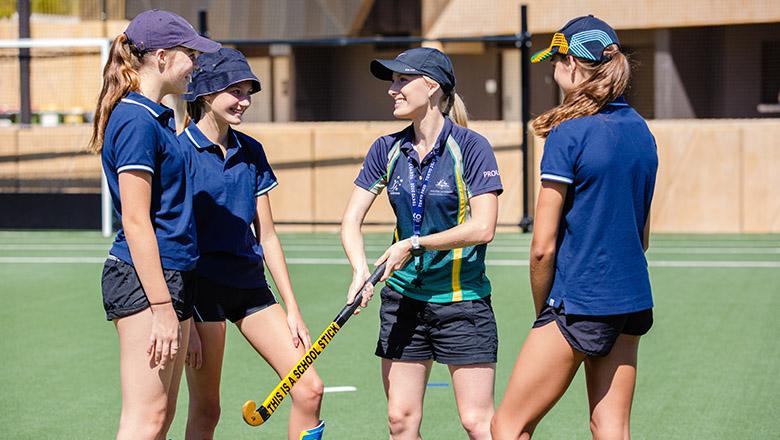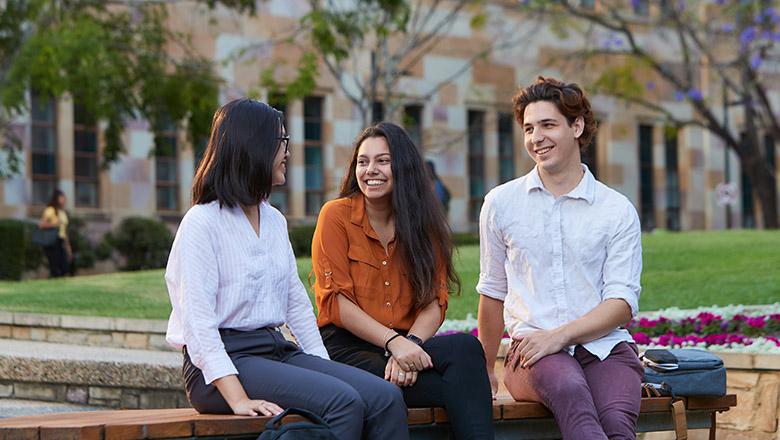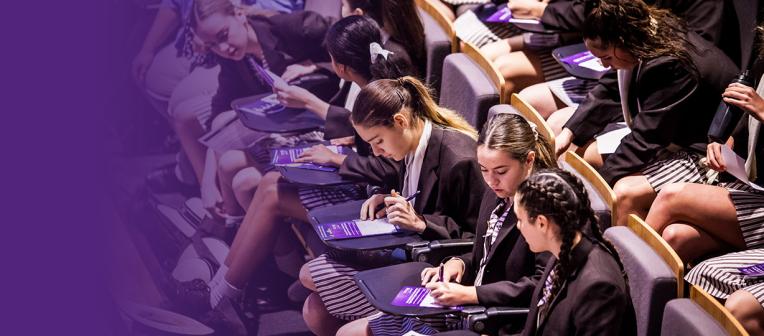Some teens thrive during high school, but for others, it can be more of a struggle. It may leave them wondering what life after high school is like, and if it'll be a more positive experience.
Whether they find the structure and rules of high school stifling, connecting with their peers challenging, or the study areas uninteresting, being at school when you don’t enjoy it can be super demotivating.
Your teen may have already asked you, "will life get better after high school?"
If your child is less than enthused to go to school every day, it’s important to remind them that it isn’t always going to be like this. There is light at the end of the tunnel.
We’ve put together a few handy tips you can use to help your teen stay positive about life after high school, and the options available to them.
Focus on working towards goals
If your teen has a dream program they want to study at university, or a dream career they’re working towards that requires higher education, make sure they focus on this goal. It might be tempting to drop out of school in years 10 and 11, especially after a particularly bad week when they could be thinking “is this worth it?”.
Encourage your teen to stick with their studies and focus on working towards their end goal. If your teen is asking "does high school matter later in life?", reassure them that while there are options to get into university without graduating high school, finishing Years 11 and 12 and receiving an ATAR will fast-track the process so they can achieve the future they desire sooner.
If your teen is experiencing bullying at school, this requires a different approach and there are many more considerations. Focusing on goals and ‘getting through it’ may not be an option for your teen, especially if their mental and physical health is at risk. Be sure to consult with the school or a professional counsellor on the best course of action for your child.
Nurture interests outside of school
Is your teen part of a local theatre group or do they play sport? They might play video games with friends online or be in a band. The point is, if your teen has interests outside of school, these need to be nurtured.
Everyone needs something to look forward to. Just like adults need hobbies and interests that make working their 9-5 job worthwhile, your teen needs some incentive to make it through the school day. Help them to carve out time between school and homework for their passion projects.
Extracurricular activities not only assist with motivation, but they also look great on a resumé. They may help your teen hone skills in a specific area, figure out what to do after high school and prepare them for their tertiary studies.

What is after high school? Remind your teen of the positives
Does life change after high school? YES! Does life get better after high school? For many teens, it sure does.
Transitioning from high school to university can be challenging, but it also comes with many positives changes – take it from UQ Bachelor of Economics graduate, Megha Thakkar.
Flexibility
“Unlike school, you don’t have to wake up at 6am each morning unless you choose to – which is a massive relief for the night owls who read late into the night (or work until 4am).”
If your teen works more productively on an alternate schedule to the one set out at high school, this will be music to their ears. They can create a timetable to optimise their time and effort around their individual study style.
Connections
“Student clubs and societies are much more diverse and popular at university compared to high school.”
Does your teen have niche interests that aren’t shared by their peers at high school? There’s a club or society for that at uni! There are so many different students with a huge range of interests and hobbies, chances are your teen will find at least one other person – or an entire group – who shares theirs.
“...even though you’re primarily here to study, you’ll also find friends from all walks of life with bright futures ahead of them,” says Megha.
“I believe that while it’s important to gain knowledge from your professors, you’ll also gain a wealth of knowledge from your peers.”
High school friendship groups can feel quite insular for many teens. At uni, there are greater opportunities to create meaningful connections with a diverse range of students. Many teens make friends with people from different cultures, faiths and backgrounds for the first time, expanding their life experience and worldview. Learning from professors is one thing, but learning from peers is a completely different experience – and one which will help your teen grow mentally and emotionally.

Autonomy
“Unlike school, all the important decisions about your life actually rest on you here.”
At uni, your teen will have the freedom to make the most of their own decisions. At high school, many things may have been decided for them – like when they work and what subjects they can take. They may have given you the reigns on things like booking health appointments and getting them to places at the right time too. All these things will be up to them now.
If they’re moving out of home for uni, they’ll have even more autonomy to decide how they want to live their life. This freedom can be exhilarating and a huge learning curve. Either way, it’s certainly an exciting prospect for your teen (even if it is a little nerve-wracking for you).
Want to prepare your teen so they know how to do a load of washing, change a light bulb and other necessities when they eventually move out of home? It isn’t too early to begin imparting some of that vital knowledge.
Individuality
“At uni, you can wear what you’re most comfortable in and simply go about your day. You can finally freely express yourself through your choice of clothing after conforming to strict uniforms and dress codes for 12 years.”
This may sound simple enough but can make a massive difference to a lot of teens who like to express their personality and identity through what they wear. School uniforms, while intending to be an equaliser, can also be restrictive and gender prescriptive. Your teen may really be looking forward to wearing what makes them feel comfortable and most like themself.
Life after high school: hear it from students
Does your teen still need more convincing that life gets better after high school? Show them this video so they can hear from current UQ students about what they love most about uni.
When your teen has a really average day at school, be sure to remind them what is after high school and the positive aspects of uni life. There is light at the end of the tunnel, and they are working towards a more exciting and fulfilling style of living and studying.
Is your teen still unsure about what they want to study at uni, or what kind of career they want to pursue? Help them find out by knowing the right questions to ask.






